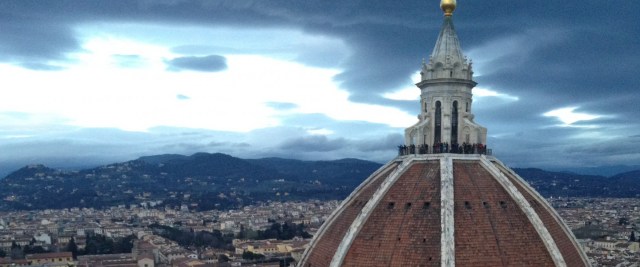
Mention miracles and most people think of startling, supernatural events. They imagine interventions (divine or otherwise) that seem extraordinary when measured against our ordinary expectations. They don’t think about the myriad marvels that underlie all sort of natural processes, including every meaningful human experience.
They envision statues crying and loaves of bread multiplying. They don’t wonder how photosynthesis ever came to be. Or ponder the fact that we really are made of stardust. Or question why time never simply stops. They don’t consider how startling it is that a billion neurons can somehow form a trillion synaptic connections that subsequently conspire to enable a reader to parse a (rather long) sentence on a page that talks about photosynthesis, stars, time, brains, and multiple other marvels.
Mention miracles and people tend to do what we all tend to do most of the time: they think within a narrow frame of reference and expectation.
This is one reason that pragmatic people sometimes say they don’t believe in miracles. What they really mean is that they have no faith in the stories they hear about startling supernatural events of the aforementioned sort. What they also imply (whether they mean to or not ) is that they may have too much faith in the easy explicability of the ordinary–and may have lost some of the childlike wonder that enables the world to appear in its full depth, richness, wildness, and weirdness.
They may well fail to notice that they themselves are marvelous beings living in a world of wonders. The consciousness through which they perceive and believe (or don’t) is certainly marvelous and arguably miraculous. So is the living body in and through which that consciousness is embedded in the world. And so, for that matter, is any world that produces living bodies that enable and embed such consciousness.
When you stop to think about it, from only a slightly different perspective than the one we’re most accustomed to, we’re living in a world that’s wonders all the way down. And it doesn’t really change much, other than a bit of vocabulary, if you substitute the word “marvels” or “miracles” for “wonders” in the sentence above. You’re still left grappling with a lot of amazing, unexplained stuff, using your own amazing, unexplained body and mind to explain stuff as best as you can.
This is not to suggest that we should believe in every spectacular, supernatural “intervention” we hear about, much less that we should rest content with mushy “It’s a miracle!” explanations to our questions about the world. We should do no such things. We should, however, recognize the limitations of our sensory, cognitive, and intellectual systems, even as we work to extend their capabilities.
We only ever know a little, and we’re not even sure how we know it. If we want to know more, we have to admit to uncertainty, proceed with humility, and continue to cultivate the wonder that feeds honest inquiry.
Thankfully, uncertainty, humility, and wonder are not the antithesis of knowing or of telling the truth. Far from it: They are necessary precursors to both. They aren’t the easiest way to look smart. They are, however, the only way to grow wise.